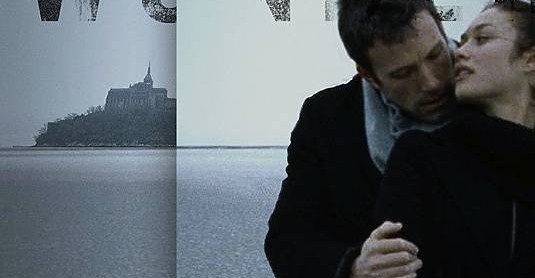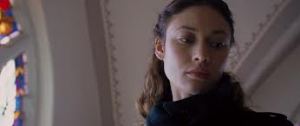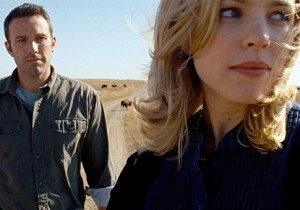 On Saturday, in part to clear our heads after the media extravaganza that was the Boston Bomber Manhunt Week, we went to the Twin Cities to see Terrence Malick’s new film, To the Wonder. It was lovely to hear so few words and see so much beauty and think deeply about what the heck he’s trying to say…
On Saturday, in part to clear our heads after the media extravaganza that was the Boston Bomber Manhunt Week, we went to the Twin Cities to see Terrence Malick’s new film, To the Wonder. It was lovely to hear so few words and see so much beauty and think deeply about what the heck he’s trying to say…
People who were frustrated or bored by Malick’s Tree of Life should probably skip this one. We loved Tree of Life enough to watch it twice. I thought it was an incredible exploration of masculinity and familial love, particularly the complexity of love between brothers, fathers and sons. The boy wants so much to be good and loves his gentle brother and his hard father. He doesn’t want to be like his father, but something cruel stirs inside him. What is human nature? Why is there cruelty and suffering? What is the nature of suffering and loss?
 To the Wonder takes up the question of eros, erotic love, and femininity, particularly the emphasis on feminine beauty. The question here seems to be: Is it sufficient for a life? What meaning does it give? What connection? What is love and are there higher forms? What love does sustain us if erotic love is so fleeting and unsatisfying?
To the Wonder takes up the question of eros, erotic love, and femininity, particularly the emphasis on feminine beauty. The question here seems to be: Is it sufficient for a life? What meaning does it give? What connection? What is love and are there higher forms? What love does sustain us if erotic love is so fleeting and unsatisfying?
There is very little dialogue and very little of what could be called plot in this film. It is a two-hour lyric. And as with lyric poetry, my advice for reading it is: Follow the beauty.
For Malick, there is always natural beauty, sometimes, as in Days of Heaven and Badlands, one could almost drown in beauty– there is beauty even in every dark moment. Locusts and fire are beautiful, war is beautiful, murder can be beautiful. One cannot help but escape into a garden.
But in To the Wonder there are two very clear sources of natural beauty: the France of the courtship between the Neil and Marina (Ben Affleck and Olga Kurylenko), culminating in the two lovers alone at Mont St. Michel, and the beauty of the ranch owned by the Rachel McAdams character, Neil’s childhood friend who interrupts the primary love story. But most of the movie takes place in a nearly empty tract home (or multiple such homes) in Oklahoma. In this home the couple doesn’t quite unpack, doesn’t quite move in, seems unable to make a home as they can’t quite make a marriage or family. It is sterile, infertile, unlovely, and insufficient. It doesn’t nourish love and it doesn’t nourish Marina’s young daughter, who ends up going home, where she belongs, in France and into an extended family.
 Jane (Rachel McAdams), however, is fully of this place. Her ranch home is packed with family mementos, the grasses are high and vivid, color-drenched (whereas the treeless suburban yard is a pale thatch of dead grass), full of wild horses and bison. Her clothing, her pearls, identify her as fully of this place naturally and culturally. Her family ties (and grief) have their own burdens, but I like her chances more than those of any of the other characters.
Jane (Rachel McAdams), however, is fully of this place. Her ranch home is packed with family mementos, the grasses are high and vivid, color-drenched (whereas the treeless suburban yard is a pale thatch of dead grass), full of wild horses and bison. Her clothing, her pearls, identify her as fully of this place naturally and culturally. Her family ties (and grief) have their own burdens, but I like her chances more than those of any of the other characters.
Finally, Javier Bardem plays a disaffected Spanish priest. He cannot fully connect with the impoverished people he wants to reach and even hides in his house from one woman (for good reason!). His sermons are theologically rich but his voice is thin– it is not reaching the people in the pews and it does not even seem to be convincing him. He is also displaced. Just as he seems to have made some connections, with a disabled boy and by touching the hands of the sick and elderly, he is being transferred to a different area and parish. Is it a lack of an erotic life, or just basic human connection? Is it America? Is it that his faith is not embodied– that he shrinks from loving others and in doing so cannot fully experience the presence of God’s love?
In the final moments of the film it seems to me we get a glimpse of a man (from behind– is it Bardem?) walking into a courtyard where there are two small children, who may or may not be his. Has he returned to Spain and made a family or to his family? I have no idea.
I found this to be a wholly satisfying film. Yes, there’s that crazy sea turtle and then the montage of Versailles that seem to come out of nowhere, but mostly the film stays focused and provides a lush scape of images and words that allow us to ask real questions about love and life.



A beautiful film, but leaves a lot to be desired in terms of story and meaning. Good review Susan.
Thanks for taking the time to comment!